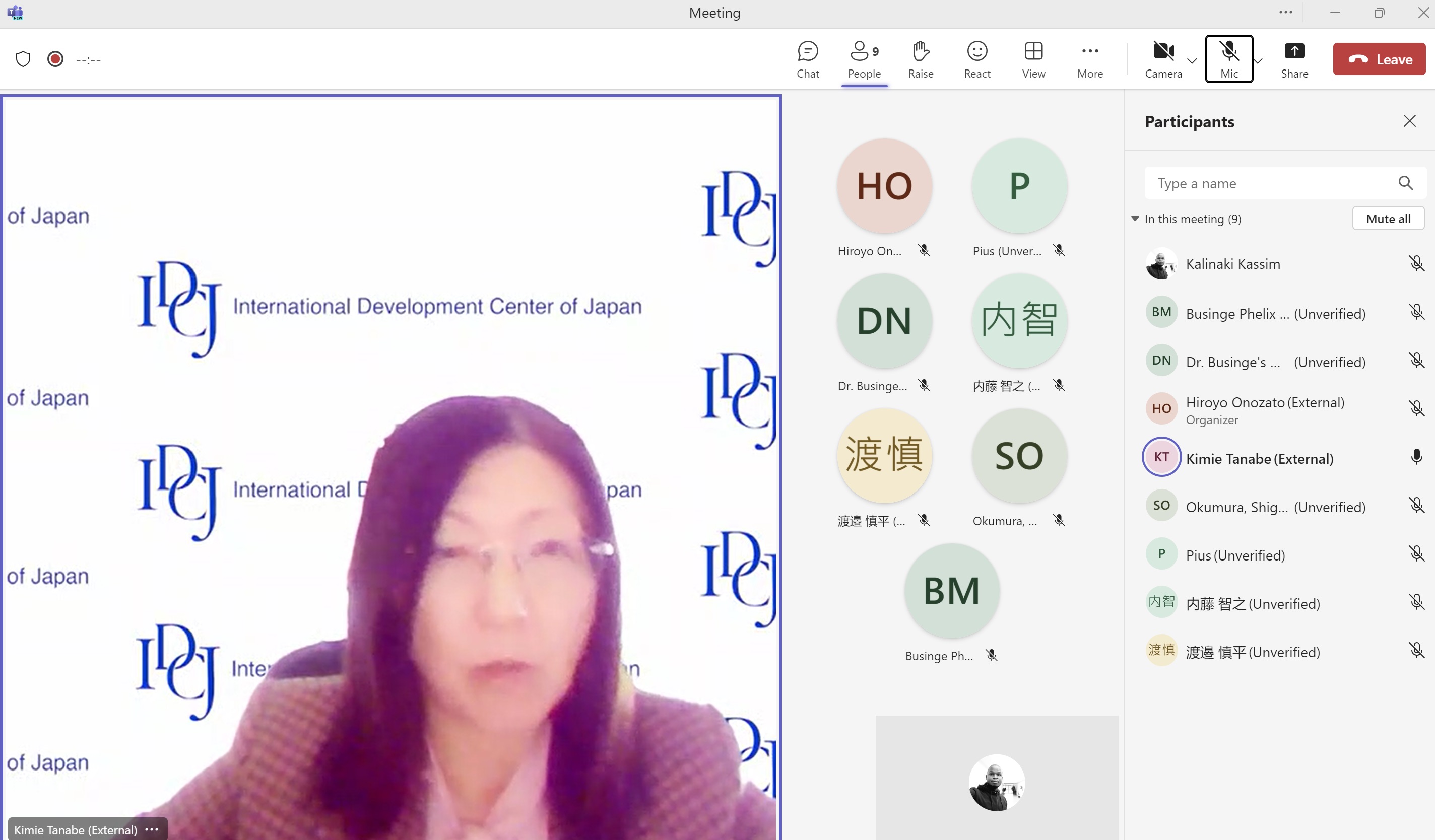Focus Group Discussion on fostering Collaboration Between Academia, Industry, and Policy in Uganda's ICT Sector

Recently, I had the privilege of participating in the Focus Group Discussions organized by the Ministry of ICT and National Guidance of Uganda with support from the Japan International Cooperation Agency (JICA). The Ministry and JICA are implementing the "ICT Industry Promotion Project," which the discussion centered on. I represented the Islamic University in Uganda, and the discussions aimed to strengthen the linkage between academia, industry, and policy stakeholders in the country's ICT sector.
During the event, I had the opportunity to present several key talking points and ideas to enhance collaboration among these three pillars. Some of the highlights included:
- Identifying Skill Gaps: I emphasized the importance of academia working closely with industry partners to understand the specific skills and knowledge required, such as the shortage of cybersecurity experts. This collaboration can lead to introducing specialized courses, certifications, or degree programs to bridge the gap.
- Internship and Apprenticeship Programs: I proposed that leading ICT companies in Uganda establish structured internship programs for students from local universities and technical institutions. These programs would provide hands-on experience in software development, data analysis, or network administration, allowing students to apply their theoretical knowledge in real-world scenarios.
- Industry-Sponsored Research: I suggested that telecommunications companies could sponsor research projects at universities focused on developing innovative solutions for improving rural connectivity or optimizing network infrastructure. This collaboration would benefit both parties, with the industry gaining access to cutting-edge research and academia receiving funding and real-world problem statements.
- Guest Lectures and Industry Mentors: I advocated for inviting successful entrepreneurs or executives from prominent ICT companies to deliver guest lectures or participate in mentorship programs at academic institutions. These interactions would expose students to practical insights, success stories, and industry challenges, better preparing them for future careers.
- Collaborative Projects: I proposed initiating joint projects between universities, software development companies, and the Ministry of ICT to develop e-government platforms or mobile applications to improve public service delivery. This collaboration would leverage the expertise of all stakeholders and foster cross-sector collaboration.
- Technology Transfer and Commercialization: I highlighted the potential of effective technology transfer mechanisms, where a university's research team develops a novel algorithm for image recognition or machine learning, which could be licensed or spun off into a startup company, allowing the commercial application of the research findings and benefiting both academia and industry.
- Policy Framework: I suggested that the government could introduce tax incentives or funding programs specifically designed to encourage academia-industry collaboration in the ICT sector. These incentives could support joint research and development projects, promote knowledge-sharing initiatives, or facilitate the establishment of industry-academia centers of excellence.
- Infrastructure and Resources Sharing: I advocated for academic institutions to open their computer laboratories, data centers, or specialized equipment to industry partners for testing, prototyping, or research purposes. Conversely, industry players could provide access to their cutting-edge technologies, software tools, or industry-specific datasets for academic use, fostering mutual learning and resource optimization.
- Professional Development and Upskilling: I proposed that universities or technical colleges could offer specialized short courses, certifications, or executive education programs tailored to the needs of industry professionals. These programs could focus on emerging technologies, project management, or leadership skills, enabling continuous professional development and knowledge enhancement for the industry workforce.
- Communication and Networking Platforms: I suggested establishing a dedicated online portal or a regular conference/symposium to facilitate networking, knowledge sharing, and collaboration opportunities among academia, industry, and policy stakeholders in the ICT sector. This platform would enable the dissemination of research findings, industry trends, policy updates, and potential partnership opportunities.
Throughout the discussions, I emphasized the importance of fostering strong partnerships among academia, industry, and policy stakeholders to drive innovation, address skill gaps, and create a thriving ICT ecosystem in Uganda.
To the organizers, I am grateful for the opportunity to contribute to these important discussions and look forward to continued efforts to strengthen the linkages between these vital sectors, which will help grow and develop Uganda's ICT industry.
